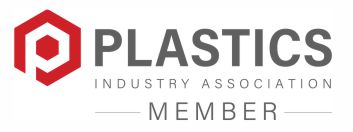Preparing for Certification Audits –
Common Pitfalls to Avoid
I recently had a conversation with Jason Leighton, Certified Lead Auditor at Perry Johnson Consulting. Jason’s 20+ years’ experience in the ISO Industry includes implementation of quality management systems in hundreds of organizations. He has also conducted certification audits on behalf of a registrar.
We discussed some of the common nonconformances found during certification audits, primarily with companies that implemented the requirements without outside assistance from a technical expert.
Per Jason, the three common issues found during certification audits are:
- Issues with documentation
- Lack of Employee Training and awareness of the quality management system
- Addressing nonconformances through corrective action
Documentation Issues – Organizations struggle to understand the breadth and depth of the documentation needed for a quality management system. Some organizations fail to meet the minimum documentation requirements while others over document their system. Each presents itself with problems that are difficult to overcome. Engaging an expert to prepare your quality and procedures manual so that it meets the criteria of the standard but is easy to maintain will alleviate problems both in document control and in certification audits. A good consultant will also guide the company in the records the company must maintain and should be able to provide you with sample forms etc.
Lack of Training – Often employees don’t have an understanding of the ISO requirements, and this makes it difficult for them to respond to the auditor. Training employees is critical. An implementation firm that offers hands on training and classroom training is what is recommended. Independent consultants will not likely offer course training with student materials etc. Also, it is important to note that webinars are useful but do not take the place of a training course on the topic as they are usually very short in duration.
Addressing Nonconformances – Organizations struggle with effective root cause analysis and systemic corrective actions. Root cause analysis training should be part of the implementation plan.
Jason goes on to say that any failure to meet a requirement leads to a nonconformity thus delaying certification. If there are findings/nonconformances found during the certification audit, the organization must re-evaluate their system to determine where the systemic failure has occurred and make changes to prevent its recurrence. In addition to delaying certification for a few months, the company may have to spend additional funds if a second visit is required by the registrar auditor.
The Bottom Line – It’s true, hiring a certification consultant does cost money. Second guessing in how to appropriately respond to ISO requirements can cost a company much more in time/money. The number one cost to a company is their staff, ask any controller. Be prudent and engage an experienced certification consulting firm such as Perry Johnson Consulting. Your road to certification will be shortened, cost you less and the quality management system will be easier to maintain.
Carrie Hayden, Vice President
Perry Johnson Consulting, Inc.


